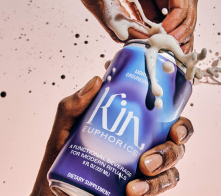Nothing stirs fear in the hearts of eCommerce marketing teams quite like a new Apple privacy announcement. And their most recent edicts concerning link-tracking changes in iOS17 are no exception.
The privacy landscape is constantly changing, and we’re all evolving in stride. Let’s walk through some of these changes, whether or not they’ll affect you, and what Retention.com is doing to stay ahead of them.
What’s Changing?
According to Apple’s recent announcement, Link Tracking Protection is likely to be enabled by default in Apple’s Mail app, Messages, and Safari's Private Browsing mode.
As with most new iOS changes, we expect that this will roll out in September or early October when the new iOS is usually released to general consumers. Fortunately, it often takes a couple of months for wide adoption of the new iOS.
What will Link Tracking Protection Do?
Link Tracking Protection aims to strip certain query parameters from URLs in Apple Mail, Safari Private Browsing Mode, and Messages.
What are query parameters? They can include:
- Social: ?utm_source=facebook&utm_medium=social
- Facebook: ?fbclid=99999
- Google Ads: ?gclid=8888aaaa
- Impact Radius: ?irclickid=999aaa
- Klaviyo ?kx=7777
- And more…
First things first, this will not impact your regular social utm codes (utm_source, utm_medium, etc). Nor will it strip Impact Radius or Klaviyo query params, or even custom utm parameters.
This is good news.
What’s The Worst Case Scenario?
So, what will be affected?: The parameters added by Google and Facebook: fbclid and gclid.
This will hurt Google Analytics’ ability to track your Google Ads, Meta’s ability to track Facebook Ads, and Facebook’s Conversion API.
Yikes? Actually, not so scary. Remember, Link Tracking Protection is only happening in Apple Mail, Messages, and Safari Private Browsing mode. Most shoppers do not use Safari Private Browsing mode, the only place where Google Search Ads should be affected. And most Facebook shoppers shop directly through the Facebook Native App.
In short, we expect that this won’t really affect most of your tracking.
Then comes Apple Mail, which has around a 50% market penetration rate. This is where you’re likely to lose Google and Facebook attribution parameters (gclid and fbclid). Your other parameters should still work.
Let’s talk about what this really means. Losing fbclid and gclid parameters in emails received through Apple Mail (or through Messages/Safari Private Browsing) can cause some headaches for you, such as:
- Broken attribution
- Broken conversion tracking
- Reduced marketing and targeting efficiency
- Trouble setting cookies for event/conversion hits
Wait, broken things?
Well, as mentioned above, this really only impacts gclid and fbclid attribution via Google Analytics, Facebook Conversion API, and Meta ad tracking, and only in this one channel. All your other attribution methods should still be fine.
Here’s a reminder of what’s not going away (at least not yet, as far as we can tell):
- Klaviyo, TikTok click iD parameters
- Link tracking in browsers like Chrome or Firefox
- Link tracking in regular Safari browsing mode
- The standard 5 UTM parameters (utm_source, umt_medium)
- Custom UTM parameters (utm_term, utm_content, etc)
The result? This really won’t affect that much of your attribution.
What Should eCommerce Brands Do About This?
Since we have time to adapt before the changes really take hold, let’s be pragmatic about it:
First, consider your channels - Remember that only some link tracking parameters will be affected in only some channels, and most people won’t be shopping through those channels.
Second, consider your attribution tracking - Are you wholly reliant on Google Analytics/Facebook to track your performance, and are you only using Google Ads? There’s no time like the present to consider alternative options.
Third, lean in to attribution methods that are not being affected. Make sure you’re exercising everything at your disposal to track the customer journey and maintain that valuable attribution.
Will This Affect Retention.com’s Product?
Nope.
This change shouldn’t have a noticeable impact on our current product suite. Social advertising attribution tracking from an email click is a small pool to begin with – and when the specificity of in-private browsing is added, the pool gets even smaller.
Retention.com will still serve you up with plenty of net-new, high-intent customers that you otherwise would be losing, and you’ll still be able to market to them using your existing marketing automation tools with all of your regular attribution methods. No changes there.
While these announcements can seem scary, rest assured that our team of seasoned eCommerce and agency experts is staying way out ahead of the curve.

